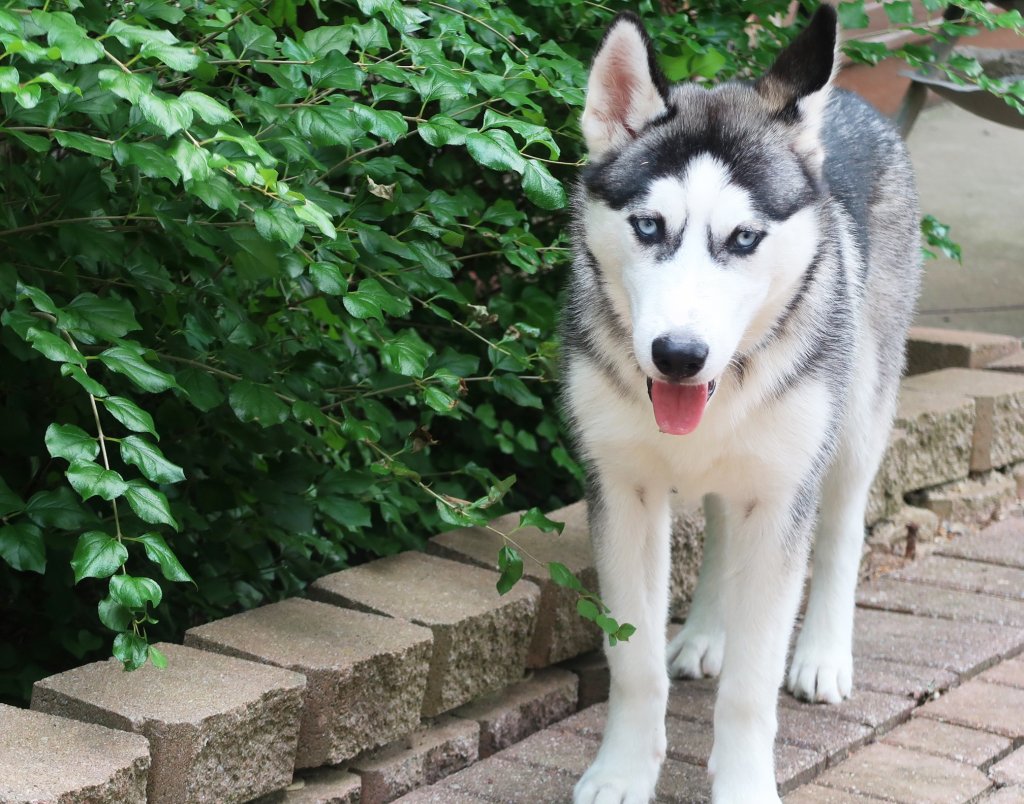Three months ago, I welcomed a husky puppy into my home.
Since then, she has — literally — consumed my life. As is to be expected from any puppy, especially an energetic “aggressive chewer” like Izzie.
Before I made the 30-minute drive to pick her up, I did all the online research I could about husky puppies. Not just how to train them, but how to care for them, how to make them feel comfortable, how to love them. I’d never owned a dog before. I was excited, but terrified.
I assumed I was feeling like any new or soon-to-be parent might feel. My “research” really helped calm my nerves and prepare me for the first night, week, and so on. As much as even the best book or website can, anyway.
I’ve learned a lot about how to train, entertain, and care for huskies — and puppies in general — since I found myself holding a three-month-old fuzzball for the first time.
But here’s what I won’t do: Start giving advice to other soon-to-be husky owners in the form of a blog, Instagram page, or some other medium that makes me sound like I’m trying to be an expert.
Why? Because I’m not.
I have owned exactly one dog in the past 26 years. She’s not even past the worst of the “puppy stage” as I’m writing this (“Don’t eat that” is a phrase I now say 50 times a day, and I’m not exaggerating). I’m pretty confident that I’ve done plenty of things wrong in the past 12 weeks. I’ve posted more to Facebook (seeking advice from friends who know more about puppies/dogs than me) than I have in years.
I use what I have learned daily to raise, train, and love my “fur baby.” And I still seem to learn something new every day.
I couldn’t imagine taking what I think I know now and writing a blog post about it, for the sake of teaching others in my situation what to do.
But there are many people who would. Who do.
And it drives me absolutely mad.
As a health science writer, I see this in the diet and fitness “space” more than anywhere else. Someone goes on a three-month weight loss “journey” and all of a sudden they’re promoting their coaching services or nutrition advice to “help people.”
I have no problem with people giving other people advice online. It’s what I do every day. I give aspiring and working writers suggestions for how to make words happen, and they either take my suggestions to heart or they don’t.
But I do this because I’ve been publishing my work online for almost a decade. I didn’t start writing yesterday. My almost 10-year-old blog has gone through so many transformations and upgrades that it’s a miracle I didn’t give up eight, five, even two years ago.
Can I give writing advice that’s reliable and adaptable to every individual because I’m a professional, I’ve been doing it for a long time, and there’s little to no chance I’m going to hurt someone in the process? Yes.
Can I give advice on how to care for/train a husky because I’ve owned one for three months, taught her to sit and shake, and am 2 taps away from giving her her own Instagram account? No.
From the side of an advice-seeker, know who you’re getting your information from. I only visited websites providing information from long-time trainers and breeders and professional organizations I could count on to give me what I needed to keep my puppy safe, healthy, and happy. I refused to visit anyone who just happened to own a husky and blog about it.
I suppose, if someone has owned 100 huskies in their lifetime and they can somehow prove they know what they’re talking about, I’d consider it. But not likely.
And from the side of an advice-giver … you’re not an expert just because you tried something once or have been doing it for three months and it’s working for you. I know people want to feel relevant and like they’re contributing to society somehow, but please stop.
But writers — this does not mean you can’t blog about your life as a writer! That’s how this blog started. For the first four years, I was a high school and early college student with no professional writing experience. I didn’t try to tell people what to do. I just rambled about my life, about my writing struggles, about my hopes and fears and goals. It wasn’t necessarily helpful, but it was a start.
You’re free to blog about anything you want. But don’t prey on those seriously looking for real-world help. Refer them to resources they can actually use, if you aren’t qualified to give the advice yourself (and if you have to question whether or not you are, you probably aren’t).
You might be a writing expert someday. But be careful how you present yourself. Don’t claim to be an expert when you aren’t. People are desperate. They’ll trust anything. Be mindful. Be helpful, but don’t be harmful. Or annoying. Please.
Everyone wants to be an expert. Not everyone is -- yet.
How I Built a Blog About Writing Before I Became a Writer
Can You Call Yourself an Expert?
The Most Important Lesson You Need to Learn Before Giving Advice On Your Blog
Meg is the creator of Novelty Revisions, dedicated to helping writers put their ideas into words. She is a staff writer with The Cheat Sheet, a freelance editor and writer, and a 10-time NaNoWriMo winner. Follow Meg on Twitter for tweets about writing, food and nerdy things.



Leave a reply to Don Massenzio Cancel reply